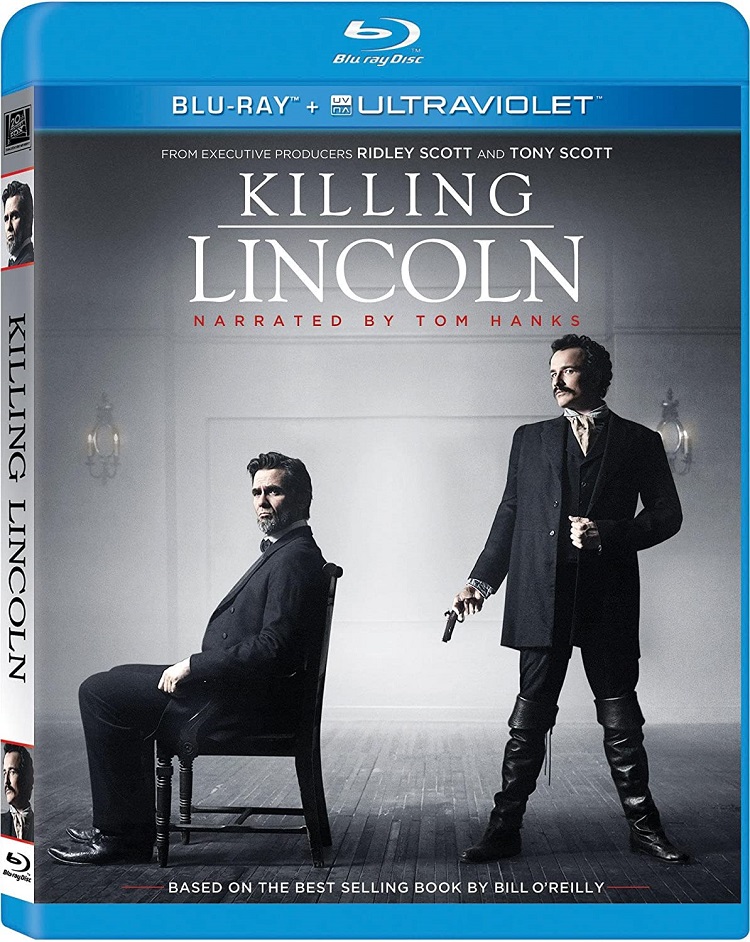
Written by Michael Nazarewycz
I remember when Howard Stern left terrestrial radio. The first thing I thought was, “You don’t want to be the next guy. At best, you want to be the guy after that.”
So big, so definitive was Stern that the guy who wound up replacing him didn’t stand a chance. (Okay, so you can argue that the guy who wound up replacing Stern, former/current/former/current/former/current Van Halen front man David Lee Roth, couldn’t have replaced most of us, let alone a living legend, but go with the spirit of the argument here, please.)
Such now is the case with anyone who decides to make a film about, or play, Abraham Lincoln. While a debate can be had that Steven Spielberg’s Lincoln, the 2012 two-time Oscar winner, is now the definitive Lincoln film, it is hard to debate that Daniel Day-Lewis’ portrayal of the 16th President of the United States in that same film is nothing short of end-all, be-all definitive.
And that’s part of what hinders the Ridley Scott/Tony Scott-produced, Tom Hanks-narrated docudrama Killing Lincoln: in less than a year, this film must follow Lincoln, and while this one isn’t exactly a Presidents’ Day sale commercial, it certainly isn’t anywhere near as epic, or well-made, as Spielberg’s film.
Director Adrian Moat’s Killing Lincoln, based on a book by Bill O’Reilly (yes, that one), lays out the days and weeks leading up to the first assassination in history of a United States President. The timeline follows the paths of Abraham Lincoln (Billy Campbell) and his future assassin, John Wilkes Booth (Jesse Johnson).
Lincoln is shown as the leader we all know him to have been, working towards freedom for slaves and the end of the Civil War. Booth, quite to the contrary, is shown as a rising stage actor and political activist, with a racist streak and great disdain for Lincoln. As time passes, Booth’s hatred for Lincoln grows, and he is the one who pushes to change the original plan that he and his co-conspirators had devised – the kidnapping of Lincoln – and raised the stakes to full-on assassination.
The greatest challenge a documentary faces is that its subject matter is a known quantity, and as the popularity of that subject matter grows, so grows the challenge to the filmmakers to make the material compelling because, let’s face it, we’ve heard it all before. In the case of a subject like Abraham Lincoln, viewers have had to know his business since elementary school, and through the years the public has been treated to over 300 portrayals of the president on TV and in the movies. So yet another telling of any portion of Lincoln’s life – especially one of the most noteworthy parts of his life … his death – must sparkle to hold the viewer’s interest.
Sadly, this one doesn’t. In fact, it’s quite dull in its reenactment, and the guiltiest party is its biggest star, Campbell. Even if you ignore the guy-liner, Campbell’s reading of his lines is done not with the weariness that the president would have felt given the monumental weight on his shoulders, but rather with the fatigue of an actor who is bored by his subject matter. The rest of the cast does little to boost Campbell, except perhaps Johnson, but he is hindered by the fact that (a) he has no interaction with Campbell, and (b) his acting is more crazed than spirited. The director is at considerable fault as well, as the pace of the story lumbers like Lincoln’s fatigued gait, with inactive action and shots that hold for far too long.
All is not lost, though. While the time leading up to Lincoln’s assassination is mired in sleepiness and such a recitation of facts that the whole thing sounds more like prep for trivia night than anything else (Name the doctor who… ! Name the house where… !), from the point in the film when Lincoln is assassinated, until the end (when Booth is cornered and ultimately killed), is quite compelling. Part of that surely is attributed to the fact that the majority of the stories of Lincoln’s demise end with the actual demise (and maybe a brief epilogue mentioning Booth’s fate). But this film covers Booth’s travels until his demise, too.
The other highlight of the film is Hanks as narrator. While his voiceovers can’t rescue the scenes, his makes the most of his onscreen time. It’s interesting; he’s certainly no Morgan Freeman when it comes to the sound of his voice, but his past commitment to historical projects (From the Earth to the Moon, Band of Brothers) lends a level of gravitas to his delivery, and having won two Oscars himself, he knows how to deliver lines in a compelling way.
Extras:
- Audio Commentary featuring executive producer/screenwriter Erik Jendresen
- An Interview with Author Bill O’Reilly (5:04): He explains his reasoning behind writing the book and offers details not revealed in the film.
- Uncovering the Truth: The Making of Killing Lincoln (22:22): This behind-the-scenes look features insight from the cast, narrator Tom Hanks, screenwriter Erik Jendresen, director Adrian Moat, and producer Ridley Scott.
- Killing Lincoln: Behind the Scenes (10:26): A collection of shorts about specific aspects of the film: Becoming Booth; Becoming Lincoln; Playing Mary Todd; Directing a New Lincoln Story; Preview.
- Sneak Peek (10:22): Trailers for Hitchcock; Stoker; Quartet; The Last Ride; Homeland Season 1
- Lincoln in Virginia (0:17): This is a promo for Virginia tourism.